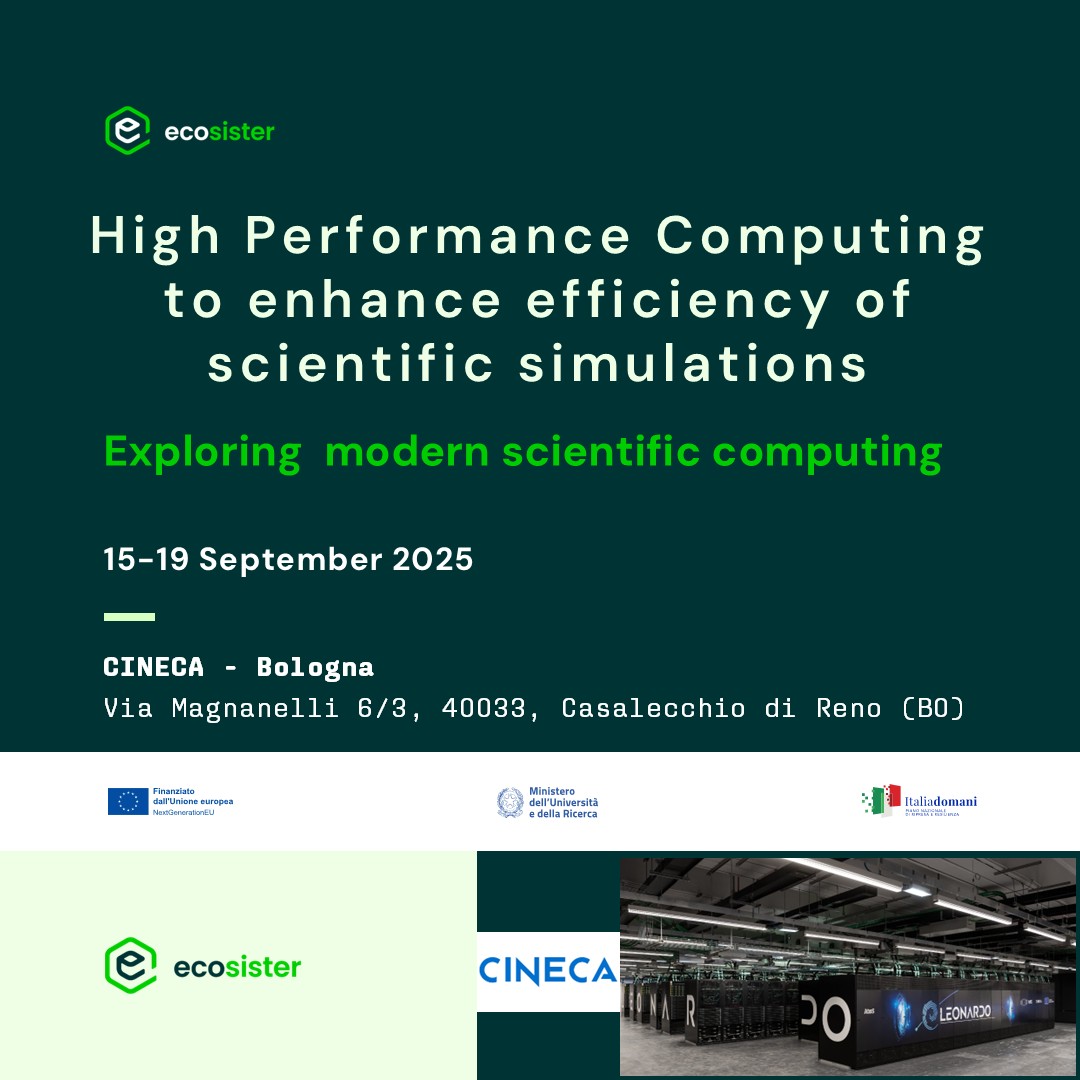
The lessons will be held ONLY IN PRESENCE at Cineca Site in Casalecchio di Reno, BO, Italy
The language of the course will be ENGLISH. .
Information about educational background and prior HPC experience will be used to tailor the content and structure of the lessons, ensuring the topics covered are relevant and appropriately pitched for the audience.
Description:
As scientific simulations become increasingly complex, particularly in fields such as materials science and biochemistry, researchers face with the challenge of learning how to fully harness the power of modern computational architectures to meet the growing demands for efficiency and performance.
This intensive workshop is specifically designed for ECOSISTER researchers and scientists who wish to deepen their skills in parallel computing, to effectively understand how to refine their codes, improving performance and scalability, and/or maximize benefits of parallelization in commercial software, ultimately accelerating their scientific progress. Through expert-led lectures, case studies, and hands-on sessions, the workshop offers a comprehensive overview of current techniques for parallelizing and accelerating scientific simulations, with a particular focus on performance optimization on HPC platforms, such as the Leonardo supercomputer, hosted by CINECA.
As a valuable addition, the workshop will also explore parallelization strategies employed by leading scientific simulation codes in materials science and biochemistry, offering practical insights into real-world applications, while also highlighting the efforts made by the community in recent years to optimise their performance. Furthermore, given the recent and rapid development of machine learning models in the field of materials science and chemistry, the workshop will include a session dedicated to a state-of-the-art overview of machine learning interatomic potentials, detailing their integration into simulation workflows and their potential to significantly enhance both performance and accuracy.
Find the program here (Kindly note that the schedule is tentative and may be subject to small changes.)
Skills:
By the end of the course the student will be able to:
- Understand the basic concepts of High-Performance Computing (HPC) and its importance in accelerating scientific simulations.
- Know the parallelization strategies used by common Quantum Mechanics (QM) and Molecular Dynamics (MD) codes to improve simulation efficiency.
- Use HPC architectures effectively by fine-tuning resource allocation for specific codes.
- Use compilers and compiler optimization options efficiently.
- Know the most relevant scientific libraries that optimize the parallelization of specific routines in simulation workflows.
Target audience:
Young researchers and programmers interested in maximizing the benefits of parallel computing in commercial software and/or improving the performance and scalability of their own codes, while building a strong foundation in practical HPC techniques.
Pre-requisites:
Participants should have experience in scientific programming (e.g., Fortran, C++, or Python) and a good understanding of computational methods used in chemistry and materials science.
